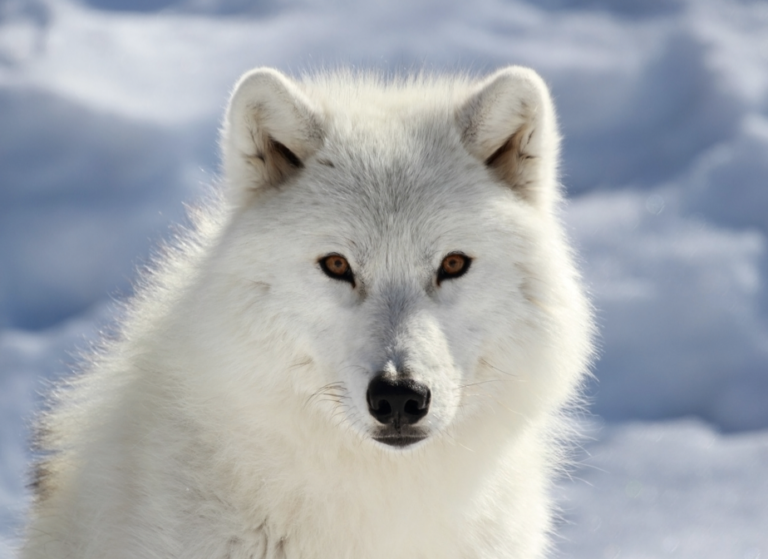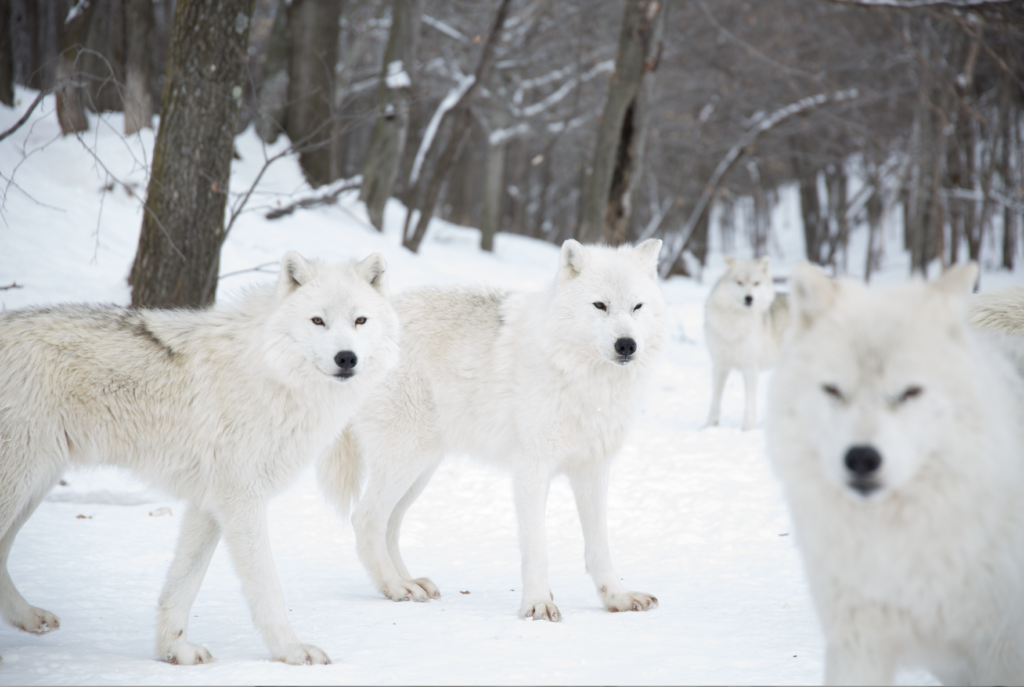Home » Arctic Wolf
Species in Peril:
ARCTIC WOLVES

This polar wolf is what legends are made of
Food? Yum Yum...
Arctic wolves have a unique diet that consists of much variety. They are not afraid to go after animals larger in size if it means a good food source.
Arctic wolves primarily hunt muskoxen and Arctic hares in the wild. Lemmings, caribou, Arctic foxes, birds, and beetles have all been observed as prey as well. Arctic wolves have also been discovered to rummage through rubbish, and do not have a problem with eating food scraps.
However, because of geographical and seasonal availability, this type of food will not always be available in the Arctic wolf’s diet. One thing is for sure though, arctic wolves are not very picky eaters!
Fearless Warriors
Arctic wolves are strong animals that are generally unafraid of humans. They have been known to pry after animals significantly larger than them in size and the same applies to humans. If you approach an arctic wolf, don’t be surprised by a sudden attack from these ferocious beasts.
Despite their relatively small size, the only predator that arctic wolves are wary of are polar bears, as these are the only animals in the wild that can occasionally pose a threat to arctic wolves.
Is trouble looming?
Even though they are not officially endangered, arctic Wolves face many threats that affect the future of the species. The two of the biggest threats are industrial development and climate change. The Arctic wolf, unlike other wolf species, rarely comes into touch with humans and does not face the threat of hunting unlike other animals.
However, the Arctic wolf is threatened by industrial development as more mines, highways, and pipelines intrude on its region, disrupting its food supply. Climate change also threatens arctic wolves by disturbing their food chain. Extreme weather patterns in recent years have made it more difficult for musk ox and Arctic hare populations to locate food, resulting in large population declines of these species. As a result, the Arctic wolf’s usual food supply has decreased.
A Few More Facts About Arctic Wolves
- Inhabit the Arctic regions of North America and Greenland.
- The arctic wolf is the only subspecies of wolf that is not threatened
- They live in caves, and not dens like other types of wolves
- Arctic wolves are usually smaller than gray wolves, and also have smaller ears, slightly shorter muzzles, and shorter legs to reduce exposure to the frigid air
- They inhabit islands that have no known human population
- Polar bears are the only animal predators of Arctic wolves.
- White fur allows them to blend into snowy surroundings.
Helping an arctic species in trouble
Climate change could potentially have a grave impact on this species. Also, any development or oil and gas drilling will disrupt their food sources. More research needs to be done on how to ensure that this beautiful species doesn’t go the same route as so many other wolf sub-species they are related to.

Species Name
Canis lupus arctos
Estimated Population
200,000 globally
Conservation Status
Least concern, but that could change quickly
Range
Arctic regions of North America and Greenland
Reasons for Population Decline
Climate change
Industrial development


